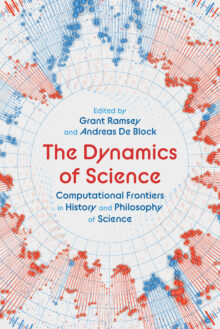
Grant Ramsey
Grant Ramsey is a research professor at the Institute of Philosophy, KU Leuven, Belgium. His work centers on philosophical problems at the foundation of evolutionary biology. He runs the Ramsey Lab, a highly collaborative research group focused on issues in the philosophy of the life sciences.
The Dynamics of Science
Computational Frontiers in History and Philosophy of Science
Millions of scientific articles are published each year, making it difficult to stay abreast of advances within even the smallest subdisciplines. Traditional approaches to the study of science, such as the history and philosophy of science, involve closely reading a relatively small set of journal articles. And yet many questions benefit from casting a wider net: Is most scientific change gradual or revolutionary? What are the key sources of scientific novelty? Over the past several decades, a massive effort to digitize the academic literature and equip computers with algorithms that can distantly read and analyze a digital database has taken us one step closer to answering these questions. The Dynamics of Science brings together a diverse array of contributors to examine the largely unexplored computational frontiers of history and philosophy of science. Together, they reveal how tools and data from automated textual analysis, or machine “reading,” combined with methods and models from game theory and cultural evolutionary theory, can begin to answer fundamental questions about the nature and history of science.

